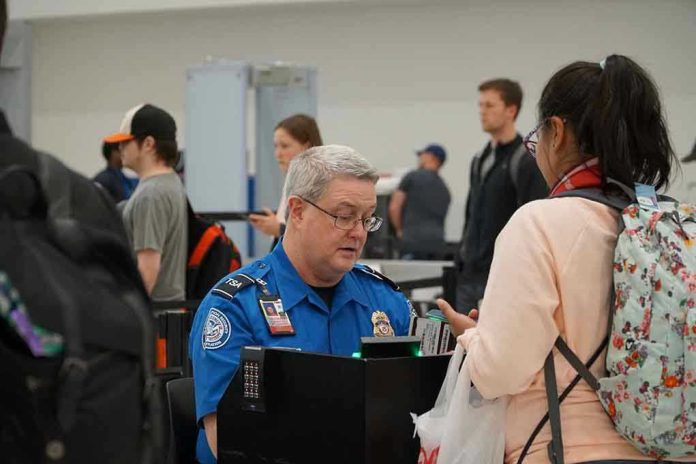
Phishing scams targeting TSA PreCheck applicants are on the rise, leaving travelers vulnerable to identity theft and financial loss.
Story Highlights
- Scammers create convincing fake TSA PreCheck websites mimicking official branding.
- Victims are tricked into paying fraudulent fees and surrendering personal data.
- Legitimate TSA PreCheck enrollment never requires online payment.
- TSA and FTC issue warnings to educate travelers about the scams.
Scammers Targeting TSA PreCheck Applicants
In 2025, sophisticated phishing scams have surged, targeting U.S. travelers seeking TSA PreCheck enrollment. Fraudsters have developed fake websites and crafted emails or texts that mimic official TSA communications, luring victims to provide personal and financial information. These scams have led to identity theft and financial loss. The key protection is understanding that legitimate first-time TSA PreCheck applications never require online payment, as official enrollment is only processed through the government’s tsa.gov domain.
Scammers target both new TSA PreCheck applicants and those seeking renewals. They exploit travelers’ urgency and unfamiliarity with official PreCheck processes, especially as travel rebounds and more people seek expedited screening. The scams capitalize on the growing demand for digital convenience in government services, which has led to an increase in phishing and spoofing technology that makes fake sites difficult to distinguish from legitimate ones.
Efforts to Combat the Scams
The Transportation Security Administration (TSA) and the Federal Trade Commission (FTC) have issued urgent warnings through social media and news outlets to educate the public on the risks of these scams. TSA emphasizes that official PreCheck enrollment is only available through tsa.gov, and applicants should never enter personal information on non-government websites. The FTC advises consumers to avoid clicking on links in unsolicited emails or texts and to report scams at ReportFraud.ftc.gov.
Despite these efforts, scam activity remains high. New fake sites and phishing campaigns appear regularly, with scammers becoming more adept at creating convincing ruses. The rapid proliferation and international origins of these scams pose significant challenges to enforcement agencies, which struggle to take down fraudulent sites quickly enough to prevent further victimization.
Impact on Travelers and Government Services
The short-term implications of these scams include financial loss and identity theft for victims, disruption of travel plans, and increased anxiety and mistrust among travelers. In the long term, there is a risk of eroding trust in digital government services, which could lead to broader identity theft and financial fraud using stolen data. This situation necessitates increased costs for remediation and consumer protection, as well as potential policy changes or increased regulation of online government service applications.
Cybersecurity experts and financial institutions have emphasized the sophistication of these scams and the importance of verifying URLs and avoiding unsolicited links. Academic and professional commentary suggests that as digital government services expand, so do opportunities for fraud, requiring ongoing public education and technical safeguards. While some experts argue for stricter regulation and faster takedown of scam sites, others stress that consumer education is the most effective defense.









